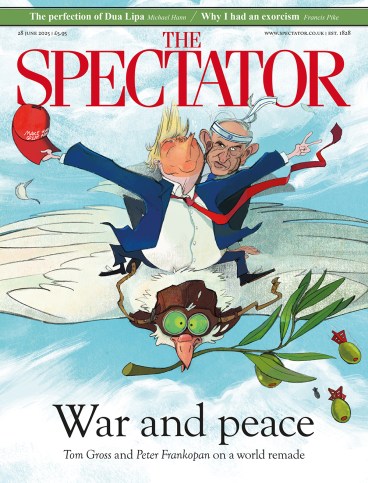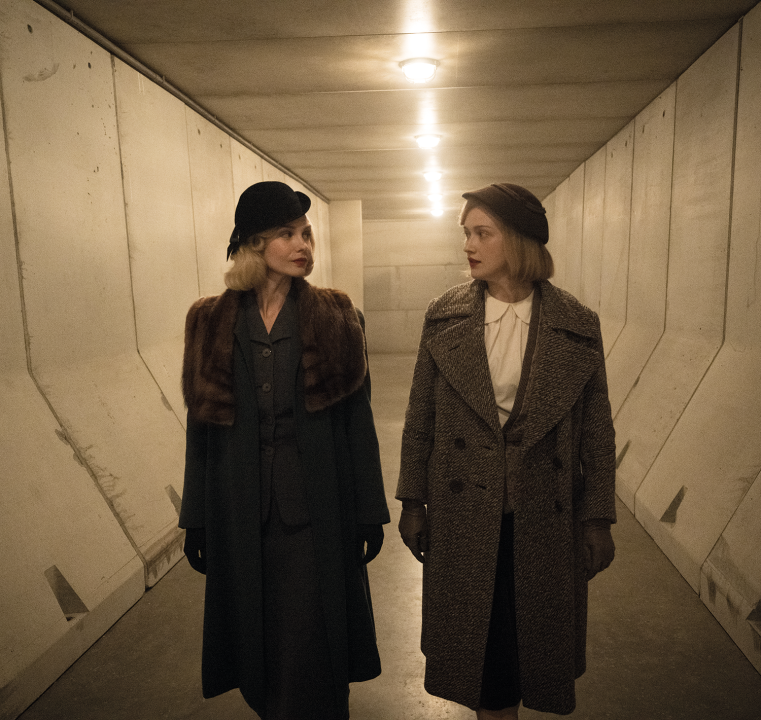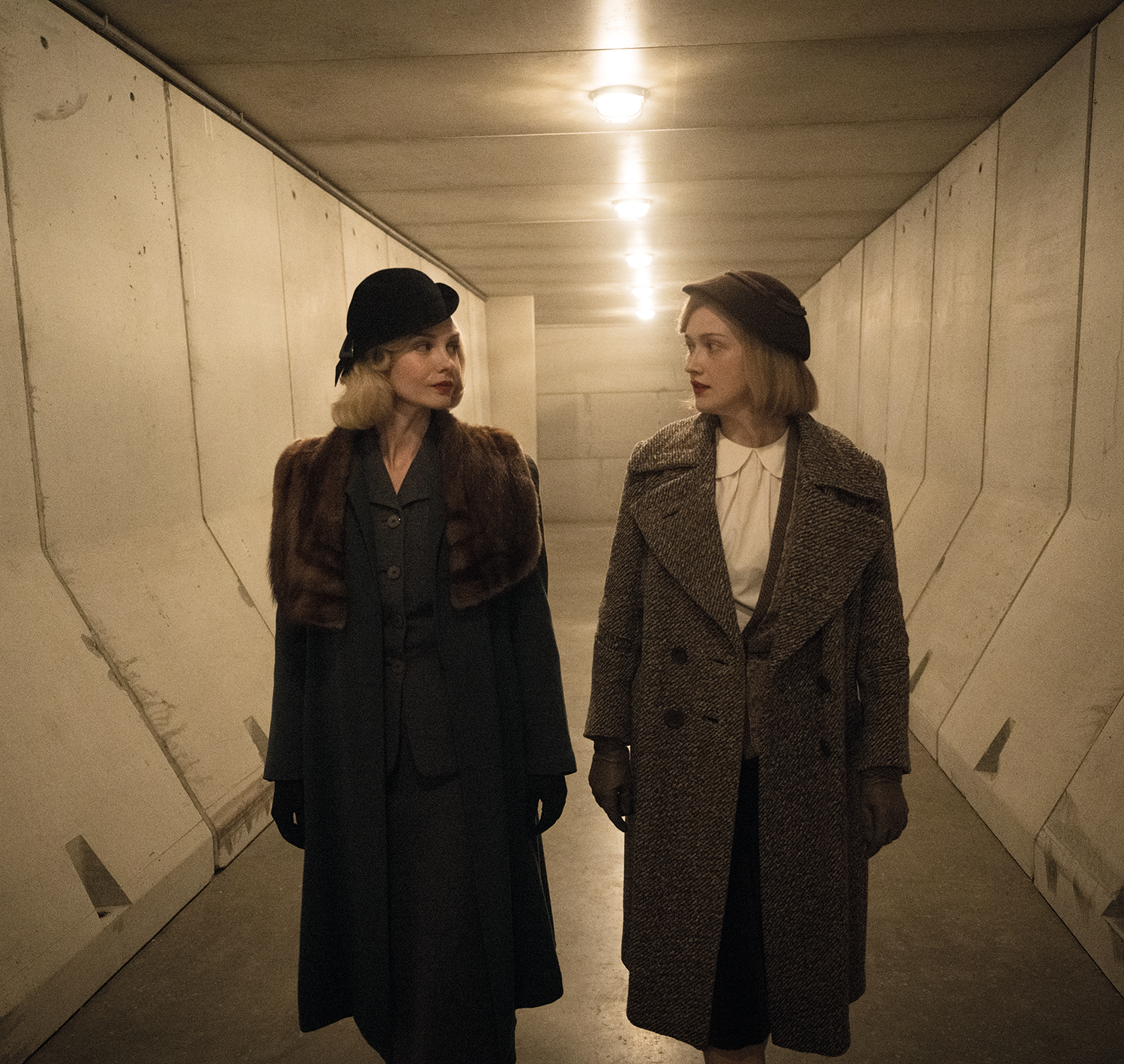
There aren’t many dramas featuring the rise of the Nazis that could be described as jaunty, but Outrageous is one. Oddly, this seems to be the first ever TV drama about the Mitford sisters – and, faced with the choice between playing it for laughs, going for a big historical soap opera or exploring the increasingly dark politics of the 1930s, the show’s writer Sarah Williams has, perhaps wisely, opted for all three.
At times, admittedly, the clash of tones can be jarring, but generally in a way that feels like an authentic reflection of a story that remains irreducibly weird. The show also strikes a neat balance between acknowledging the Mitfords’ charm and never entirely succumbing to it.
The first episode of two so far began with a voiceover from Nancy introducing us to the family as they sat poshly around a swimming pool in 1931, reading newspaper articles about Diana’s ‘perfect marriage’ to the very rich Bryan Guinness. As girls, Nancy told us, the sisters had been expected to spend their lives breeding the next generation of aristocrats. As young women, they were now about to go ‘entirely off the rails’.
Diana’s own rail departure started when, in one of the programme’s many well-appointed drawing rooms, she heard Oswald Mosley giving a lecture on how to make the country great again. She was immediately smitten – and not just with his sensible policies for a happier Britain.
More knockabout were Nancy’s romantic troubles with the transparently gay Hamish. Advised by sole brother Tom that Englishmen suffer from ‘crippling sexual shyness’ (not a problem for Mosley, it soon turned out), she decided to seduce Hamish with the aid of an elegant nightie and a four-poster bed; at which point he made his excuses and left… for America. Her next beau, married swiftly on the rebound, was Peter Rodd, whose suitability as husband material can be best understood from the first four entries for him in the index of Selina Hastings’s Nancy Mitford biography: ‘career in delinquency’, ‘drunkenness’, ‘fecklessness’ and ‘infidelity’.
Meanwhile, the two teenage Mitford girls were heading in markedly different directions. The sight of Adolf Hitler in a cinema newsreel had a similar effect on Unity as Mosley had had on Diana. A sudden fondness for the cloth-capped masses led to Jessica urging her family to perform the 1930s equivalent of checking their privilege.
Even so – and again both jarringly and authentically – blood proved thicker than extremist politics. When Diana asked for her opinion on Mosley, Nancy admitted that ‘I can’t quite stomach all that blackshirt thing’, but wished her beloved sister well nonetheless. Jessica and Unity good-naturedly debated the rival claims of communism and fascism while strolling through Oxford.
There are, however, two aspects of the show that jar less authentically. Nancy’s continuing voiceover does capture her somewhat effortful desire to find everything amusing – but, by consisting almost entirely of clichés, badly fails to show what a great prose stylist she was. The Mitfords also don’t sound posh enough.
If you want to hear their real accents, I’d suggest finding Jessica’s scarcely believable rendition of ‘Maxwell’s Silver Hammer’ on YouTube or Diana’s Hitler-defending 1989 appearance on Desert Island Discs. The sisters here, by comparison, are distinctly non-U – as if the makers think that, while we won’t mind Nazi-lovers, we’d draw the line at characters so outmodedly aristocratic as to be unrelatable to a modern audience.
From Outrageous, social historians might want to head to The Kim Kardashian Diamond Heist for a 21st-century update on celebrity sisters. Perhaps the most obvious contrast is in the attitude to fame. The Mitfords did all they could to stay out of the news; the Kardashians, of course, do all they can to stay in it, posting their every move on social media.
Which is where Kim went wrong in 2016. Spotting the amount of jewellery she photographed herself wearing during Paris Fashion Week, a group of elderly crooks found out which hotel she was staying in and robbed her at gunpoint of millions of dollars’ worth.
This being BBC3, the theft was put forward as one of the more important world events of recent years, and so given the full investigative treatment, with assorted journalists, cops and even robbers talking us – rather compellingly, in fact – through every element of the theft and subsequent manhunt.
There was also much emphasis on the impact on Kim who, on the impeccably modern grounds that everything happens for a reason, saw the theft as a wake-up call about the dangers of materialism – a claim the programme accepted without either a murmur or much evidence. Artfully bling-free though she might now be in public, Kim still didn’t come across as someone whose levels of frugality would have won the approval of the young Jessica Mitford.








Comments